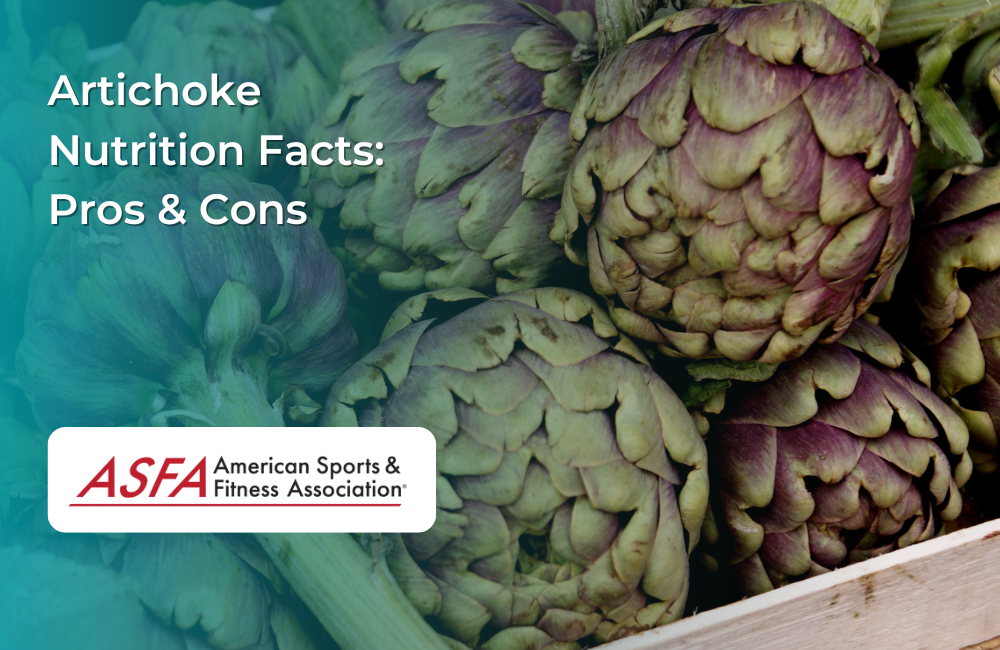Artichokes are a nutrient-dense vegetable known for their high fiber content, antioxidant properties, and support for digestion and heart health. They are low in calories but packed with vitamins and minerals, making them a great addition to a balanced diet. While artichokes provide several health benefits, some individuals may need to consider their effects on digestion and preparation time.
Artichoke Nutrition Facts, Pros, Cons: Per One Medium Artichoke, Cooked
Here are the nutrition facts of a cooked artichoke (per one medium artichoke):
-
Calories: 60
-
Protein: 4g
-
Carbohydrates: 13g
-
Fiber: 7g
-
Sugar: 1g
-
Fat: 0.5g
-
Vitamin C: 15% of the Daily Value
-
Vitamin K: 18% of the Daily Value
-
Magnesium: 50mg
-
Potassium: 425mg
What Is an Artichoke?
An artichoke is a unique and nutrient-rich vegetable that belongs to the thistle family. Native to the Mediterranean region, this perennial plant is cherished for its edible flower bud, which is harvested before it blooms. Artichokes are celebrated not only for their distinctive flavor and texture but also for their impressive nutritional profile. High in fiber, vitamins, and minerals, they offer numerous health benefits. Whether you enjoy them raw, cooked, or as an extract, artichokes are a versatile addition to any diet, providing a delightful culinary experience and a boost to your overall health.
Pros of Artichokes
High in Fiber for Digestion
-
Supports gut health and promotes regular bowel movements
-
Helps regulate blood sugar levels by slowing carbohydrate absorption
-
Individuals with irritable bowel syndrome (IBS) may need to be cautious when consuming high-fiber foods like artichokes, as they can sometimes exacerbate symptoms
Rich in Antioxidants
-
Contains polyphenols and flavonoids that help protect cells from oxidative stress
-
May support liver function and detoxification
-
Artichoke extract, rich in antioxidants, can help protect cells from oxidative stress and support overall health
Supports Heart Health and Blood Pressure
-
High fiber content helps lower cholesterol levels
-
Provides potassium, which supports healthy blood pressure regulation
-
Artichoke supplementation has been shown to help manage both systolic and diastolic blood pressure, contributing to overall heart health
Low in Calories but Nutrient-Dense
-
Great for weight management due to its high satiety and low-calorie profile
-
Provides essential vitamins and minerals without added fats or sugars
May Improve Liver Function with Artichoke Leaf Extract
-
Contains cynarin, a compound that supports bile production and liver detoxification
-
Taking artichoke leaf extract daily can support liver health and improve bile production, contributing to better digestion and detoxification.
Cons of Artichokes
Can Cause Digestive Discomfort in Some Individuals
-
High fiber content may cause bloating or gas, especially if consumed in large amounts
-
Gradually increasing fiber intake can help prevent discomfort
Requires Preparation and Cooking Artichokes Time
-
Fresh artichokes can be time-consuming to prepare compared to other vegetables
-
Canned or frozen versions, such as canned artichoke hearts, are more convenient but may contain added sodium
May Interact with Certain Medications
-
Can affect bile production, which may interfere with some medications related to digestion and liver function
-
Individuals with gallbladder issues should consult a healthcare professional before consuming large amounts
Conclusion
Artichokes are a fiber-rich, antioxidant-packed vegetable that offers numerous health benefits of artichokes, including support for digestion, heart health, and liver function. They are low in calories and high in essential nutrients, making them a great addition to most diets. However, their fiber content may cause digestive sensitivity, and their preparation can be time-consuming. Choosing fresh, canned, or frozen versions based on convenience ensures their nutritional benefits are accessible.
FAQs
Are artichokes good for weight loss?
Yes, their high fiber content promotes satiety while being low in calories, making them a great addition to a weight-loss diet.
Can I eat artichokes every day?
Yes, artichokes can be part of a daily diet, but gradually increasing fiber intake helps avoid digestive discomfort.
Are canned artichokes as healthy as fresh ones?
Canned artichokes retain most nutrients but may contain added sodium. Rinsing them can help reduce excess salt, ensuring you still benefit from the rich artichoke nutrition.
Do artichokes help with digestion?
Yes, they contain fiber and compounds that promote gut health and support bile production for digestion.
Can artichokes cause bloating?
Some people may experience bloating due to their fiber content, but cooking them thoroughly can help reduce this effect.





